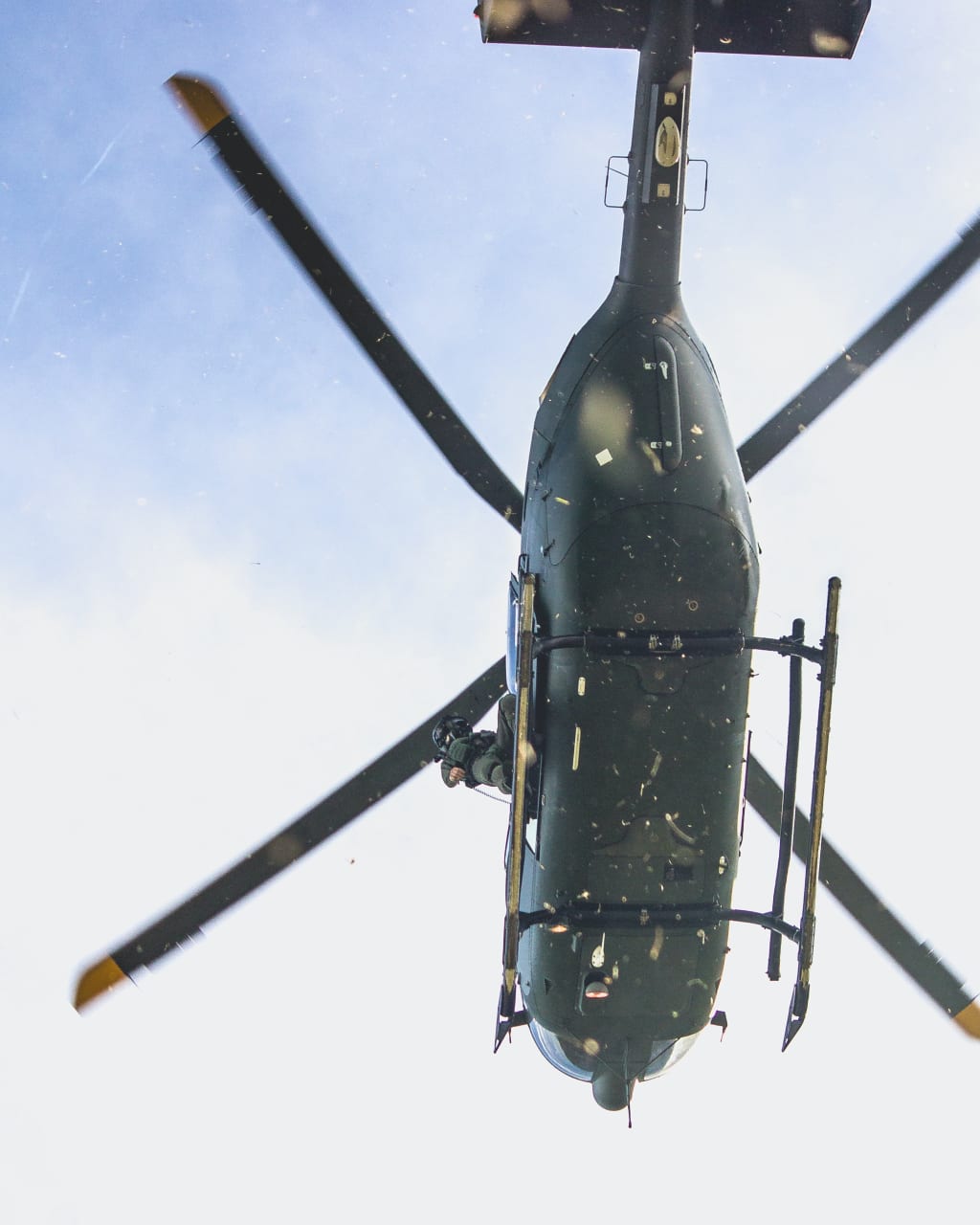How did the First World War break out
How did the First World War break out

As one historian points out, "The First World War is an enigma, its origins and processes are incomprehensible." It is true that the pre-World War I conflicts are complex and the international situation very strange, but it is possible to disentangle the main clues.
The international balance of power has changed dramatically, and contradictions between the great powers have intensified
At the end of the 19th century and the beginning of the 20th century, with the transition from capitalism to imperialism, Germany, the United States and other emerging capitalist powers took advantage of the opportunity of the Second industrial Revolution and quickly surpassed the old colonial empires such as Britain, France and Russia. In 1894, the GROSS industrial output of the United States surpassed that of Britain to rank first in the world. Between 1900 and 1910, Germany overtook Britain to become second in the world. From 1870 to 1913, the total industrial production value of the United States rose from 23% to 36% of the world total, Germany from 13% to 16%, while Britain dropped rapidly from 32% to 14%, and France from 10% to 6%.
Competition among major powers is based on strength. Once the balance of power is unbalanced, conflicts will inevitably intensify. The main contradiction is the confrontation between the new capitalist power and the old colonial empire. Colonies are the basis for the survival and development of imperialism, so they become the main object of contention. But by this time the colonies had been carved up by the old colonial empires of Britain, France and Russia. The British colonies were twice the size of Russia, three times the size of France, and 11 times the size of Germany. The new powers demanded a new division of colonies and spheres of influence, while the old colonial empires fiercely defended their vested interests. Germany tried to defeat Britain and France by force and carve up its vast colonies, while using the Austro-Hungarian Empire to fight for the Balkans. In 1879, Germany formed a military alliance with Austria-Hungary against France and Russia. In 1882, Italy joined the Union as a result of its conflict with France in North Africa, forming the Triple Alliance. 1892 Russia and France signed a treaty of a rival military alliance. The confrontation between two major military groups took shape in Europe, and the balance of power between Russia, Britain, Prussia, Austria and France, which had been formed after the Vienna Conference in 1815, no longer existed.
Germany's "world policy" and Britain's anti-German alliance led to the deterioration of bilateral relations
From German unification in 1871 to the end of the 19th century, Anglo-German relations were generally normal. In 1890, After Kaiser Wilhelm II took office, the Relationship between Britain and Germany deteriorated. In 1897, Kaiser Wilhelm II adjusted the "continental policy" to the "world policy" : changed Bismarck's policy of desalting the colonies and advocated the expansion of German territory through colonialism; Abandoning Bismarck's strategy of balance and balance, he demanded to break the balance of power and dominate the European continent. The navy was built on a large scale, and Tilpitz was appointed to preside over its construction; To compete with Britain and build Germany into a powerful colonial empire. Germany's "world policy" and Britain's world hegemony have irreconcilable structural contradictions: Germany's expansion of the navy directly threatened Britain's maritime hegemony; Germany's attempt to dominate the European continent ran counter to Britain's policy of maintaining the balance of power on the Continent. Germany's competition for "land in the sun" was bound to intrude into the sphere of influence of Britain, which had the most colonies. Due to the antagonism of fundamental interests, although the two sides tried to coordinate and even negotiated for alliance three times, they all ended in failure.
After the failure of the alliance, Britain believed that Germany had both the strength and the intention to challenge itself, and was close at hand. In order to suppress and contain Germany, Britain not only made peace with its old enemy America in America, but also made peace and allied with its former enemies Russia and France in Europe -- signing the Entente francaise with France in April 1904 and the Entente Russo with Russia in August 1907. Thus, the two major European military blocs, the Allies of Germany, Austria and Italy and the Allies of Britain, France and Russia, were formally formed. The Allies' economic, military and comprehensive national strength were superior, and Germany was in a strategic passive position.
The two major military groups launched a vicious arms race, and the situation in Europe gradually turned from overall peace to out of control
After the confrontation between the two military blocs took shape, the two sides frantically expanded military preparations and tried to comprehensively suppress each other. As a result, they fell into a "security trap" and came to a dead end. The naval race was the main content of the arms race between Britain and Germany. In March 1898 and June 1900, the German Parliament successively passed the Naval Act, planning to have 38 battleships, 14 large cruisers and a number of other warships before 1917. Britain fought back, building the battleship Intrepid in 1906. In 1908, Germany demanded that the construction of the Dreadnought be speeded up and that the service of capital ships be shortened. Britain said it would build two warships for every one Germany built. In 1912, Germany enacted the fifth law to expand its navy, while the British Parliament codified the "double strong standard" (exceeding the two most powerful navies in the world). By the outbreak of world War I, Britain had 688 warships with 201,200 men in service; Germany had 391 warships with 79,400 men.
From the end of the Napoleonic Wars in 1815 to the end of the 19th century, the war between the European powers lasted only three and a half years, and the European situation was generally peaceful. But by the beginning of the 20th century, the arms race and fierce competition between the two military blocs made military crisis and local war the main body of the situation in Europe. In particular, the two Balkan wars of 1912-13 redrew the Balkan map: Serbia, Greece and Romania were grouped into the British, French and Russian bloc; Bulgaria and Turkey went to Germany and Austria. Balkan is located at the crossroads of Europe, Asia and Africa. With numerous small countries and numerous nationalities, various contradictions are intertwined. The involvement of two major military groups makes it the "Powder keg of Europe".
Sarajevo assassination triggered the "July crisis", the Balkans "powder keg" detonated the world war
On June 28, 1914, Archduke Franz Ferdinand, austro-Hungarian crown prince, was shot dead in The Bosnian capital Of Sarajevo by a young Serb, Josep Princip, sparking a crisis. There was then a month for the big powers to negotiate, but the final result was all-out war in August. Much of this is worth pondering.
First, the lack of sincere and rational communication and the failure of brinkmanship. The Crisis of July and the whole pre-World War I diplomacy of great power was directed at buying time for one country to prepare for the war and strengthening oneself to weaken the enemy in order to win the war. There was little serious attempt at conciliation and communication. Not a single foreign royal or politician came to Vienna for the funeral of the Archduke Ferdinand. Meanwhile, a nasty habit of brinkmanship leaves both sides to chance. More than a decade before the outbreak of the first World War, There were several crises in Europe in which great powers were drawn to the brink of war, only to reach last-minute compromises that made brinkmanship a vice of great power diplomacy. In the July crisis brinkmanship was once again seen as a tool to overwhelm opponents, playing edge to edge in the hope that they would back down first, only to "plunge headlong into the boiling waters of war".
Second, alliances create a kidnapping effect, with smaller countries dragging larger countries into war. Alliances may strengthen one's side, but they also mean responsibility and bondage. Allies should stand up for any action, whether it is just or in their own interests. On July 2, 1914, Austria-Hungary issued an ultimatum to Serbia. On the 25th, Serbia accepted most of the conditions, but Austria-Hungary still declared war on Serbia on the 28th. Serbia's Allies Russia and France immediately mobilized. Under these circumstances, Austro-Hungarian ally Germany declared war on Russia on August 1 and on France on August 3. On The 4th, Britain, an ally of Russia and France, declared war on Germany. Big countries are dragged into world wars by small countries, which deplete their national strength and decline in prolonged conflicts.
Third, extreme nationalism is fueling the threat of kidnapping. Nationalism is a double-edged sword. When it appropriately promotes patriotism, it can rally the people and gather strength. When it is magnified, it becomes an accomplice to incite hatred and stir up trouble. Before the first world war, European nationalism had morphed into an instrument of foreign expansion. In order to satisfy the ambitions and desires of politicians and plutocrats, rulers manipulate nationalism and bind the masses to chariots. The intelligentsia and the public opinion assisted in the abuse and sought theoretical basis. Nationalism stirred up a war fever in the population, and the government that fanned it lost control.
Fourth, distorted ideas lead to flighty warmongering from top to bottom and wrong decisions made by leaders. As the level of understanding did not keep pace with the pace of the industrial age, social Darwinism prevailed, and rulers pursued "zero-sum game" to expand the living space with the concept of "law of the jungle". Most military and political leaders do not realize that the world has entered the stage of "total war" and still believe in the experience of the Franco-Prussian War: the process of war is short, one or two battles will determine the outcome, and there will be no uncontrollable consequences. The battle plans were based on quick results: The Germans planned to take Paris in 39 days, and the French and British thought victory would be a matter of months.
But the two sides ended up in four years of bloody trench warfare involving 33 countries and 1.5 billion people around the world. Wars raged across Europe, Africa, Asia and the Atlantic and Pacific oceans. The two sides mobilized more than 70 million troops, leaving about 10 million dead and 20 million wounded. The empires of Russia, Germany, Austria-Hungary and Ottoman Turkey collapsed, and Britain and France went into decline. The main battleground, Europe, lay in ruins, losing its place as the world's factory and financial center. The First World War, which lasted from August 1914 to November 1918, was an imperialist war for hegemony. However, both the losers and the victors suffered from the devastating disaster caused by the war to civilization and society.






Comments
There are no comments for this story
Be the first to respond and start the conversation.